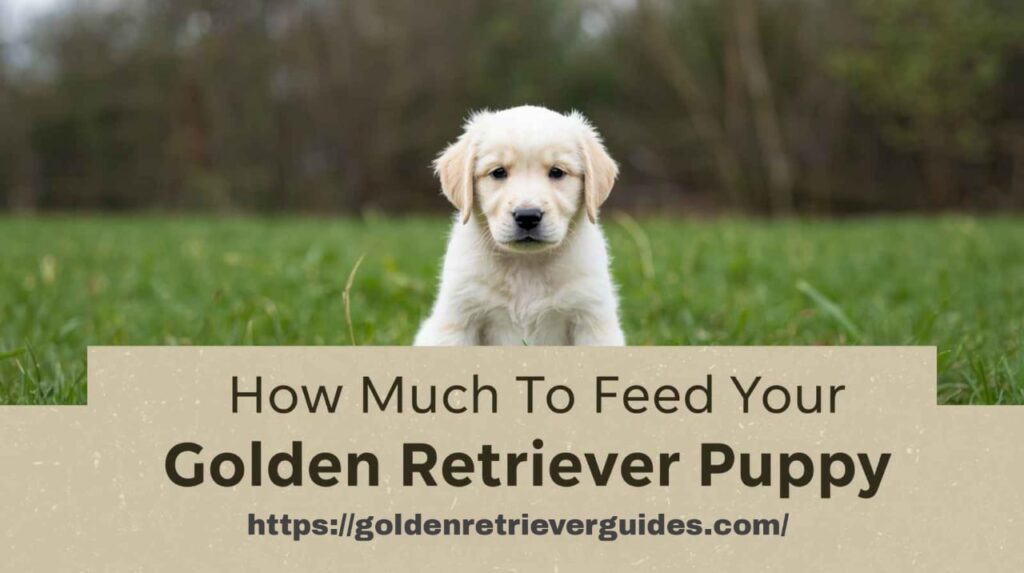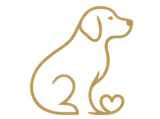How Much to Feed Golden Retriever Puppy: A Complete Feeding Guide

Feeding your golden retriever puppy the right amount of food is crucial for their healthy development and long-term well-being. Understanding how much to feed golden retriever puppy requires careful consideration of age, weight, activity level, and nutritional needs. This comprehensive guide provides evidence-based feeding recommendations to help your puppy thrive.
Table of Contents
Understanding Golden Retriever Puppy Nutritional Needs
Golden retriever puppies are large-breed dogs that require specific nutritional support during their rapid growth phase. The amount of food needed varies significantly based on developmental stage, with puppies requiring more calories per pound of body weight than adult dogs to support their growth.
Age-Based Feeding Requirements
2-3 Month Old Puppies At 2-3 months old, when golden retriever puppies typically leave their mothers, they should receive approximately 3 cups of high-quality large-breed puppy food divided into three meals per day. At 2–3 months old, which is usually when they are ready to leave their mother, a Golden Retriever puppy should be eating 3 cups of dog food divided into three meals per day.
4-6 Month Old Puppies During this crucial growth period, golden retriever puppies require 1.5 to 2.5 cups of food daily, split into three meals. This stage represents the most rapid growth phase for golden retrievers.
7-12 Month Old Puppies Older puppies need 3-4 cups of food per day as they approach their adult size. A seven-month-old Goldie needs 3 to 4 cups per day, with portions adjusted based on individual growth patterns and activity levels.
Golden Retriever Puppy Feeding Chart by Weight
Understanding how much to feed golden retriever puppy based on weight provides more precise feeding guidelines:
Female Golden Retriever Weight Chart
2 Months – 10-14 pounds, 3 Months – 15-21 pounds, 4 Months – 22-30 pounds, 5 Months – 28-38 pounds, 6 Months – 30-46 pounds. These weight ranges help determine appropriate feeding amounts throughout development.
Caloric Requirements
Adult golden retrievers require 1,300 to 1,700 calories per day, while puppies need proportionally more calories per pound to support growth. An adult and active golden will need to eat between 1,300 to 1,700 calories per day.
Feeding Schedule and Meal Frequency
How Often to Feed Your Golden Retriever Puppy
8-12 Weeks: Four meals per day 3-6 Months: Three meals per day
6-12 Months: Two to three meals per day 12+ Months: Two meals per day
Regular feeding schedules help establish proper digestion patterns and prevent bloat, a serious condition in large-breed dogs. Consistent meal timing also supports house training efforts.
Choosing the Right Food for Your Golden Retriever Puppy
Large-Breed Puppy Formula Importance
Golden retriever puppies require specially formulated large-breed puppy food to support proper bone and joint development. These formulas contain optimal calcium-to-phosphorus ratios and controlled calorie density to prevent developmental orthopedic disease.
Wet vs. Dry Food Considerations
Both wet and dry food options are suitable for golden retriever puppies. You can choose between wet food and dry food for your golden retriever puppy, each with their own pros and cons. Dry kibble promotes dental health, while wet food provides additional hydration.
Expert Quotes on Golden Retriever Puppy Nutrition
“Proper nutrition during puppyhood sets the foundation for a lifetime of health in golden retrievers. Overfeeding during the rapid growth phase can lead to developmental issues that affect dogs throughout their lives,” states Dr. Sarah Mitchell, veterinary nutritionist.
“The key to feeding golden retriever puppies isn’t just about quantity—it’s about providing balanced nutrition at the right intervals to support optimal growth without causing orthopedic problems,” explains Dr. Robert Chen, DVM.
Common Feeding Mistakes to Avoid
Overfeeding Risks
Overfeeding golden retriever puppies can lead to rapid weight gain, putting stress on developing joints and increasing the risk of hip dysplasia and other orthopedic conditions. Monitor body condition regularly rather than relying solely on food amount recommendations.
Free-Feeding Problems
Avoid leaving food available all day, as this makes it difficult to monitor intake and can lead to overeating. Scheduled meals provide better portion control and support training efforts.
Transitioning to Adult Food
Golden retriever puppies typically transition to adult food between 12-18 months of age. This transition should occur gradually over 7-10 days, mixing increasing amounts of adult food with decreasing amounts of puppy food to prevent digestive upset.
Monitoring Your Puppy’s Growth and Adjusting Food Amounts
Regular weight monitoring and body condition scoring help determine if feeding amounts are appropriate. Puppies should have a visible waist when viewed from above and ribs that are easily felt but not visible. Adjust portions based on individual growth rates and activity levels.
Signs of Proper Nutrition
- Steady, consistent growth
- Bright, clear eyes
- Shiny coat
- Good energy levels
- Normal bowel movements
Special Considerations for Active Puppies
Highly active golden retriever puppies may require additional calories to support their energy needs. However, increase portions gradually and monitor weight gain to prevent overfeeding. Consider the puppy’s activity level, weather conditions, and growth stage when adjusting food amounts.
For more detailed information about golden retriever care, visit our comprehensive golden retriever guides section. You can also use our dog calorie calculator to determine your pet’s nutritional needs. Additional nutritional information can be found on PetMD.
Conclusion
Determining how much to feed golden retriever puppy requires careful attention to age, weight, growth stage, and individual needs. Following evidence-based feeding guidelines, using high-quality large-breed puppy food, and monitoring your puppy’s development ensures optimal nutrition during this critical growth period. Regular veterinary consultations help fine-tune feeding strategies and address any concerns about your puppy’s growth and development. With proper nutrition and feeding practices, your golden retriever puppy will develop into a healthy, well-nourished adult—but are you prepared to adjust your feeding strategy as your puppy’s needs continue to evolve?




Awesome article.
Thanks Your Feedback:)